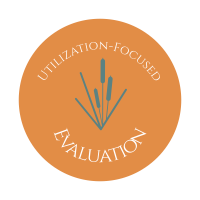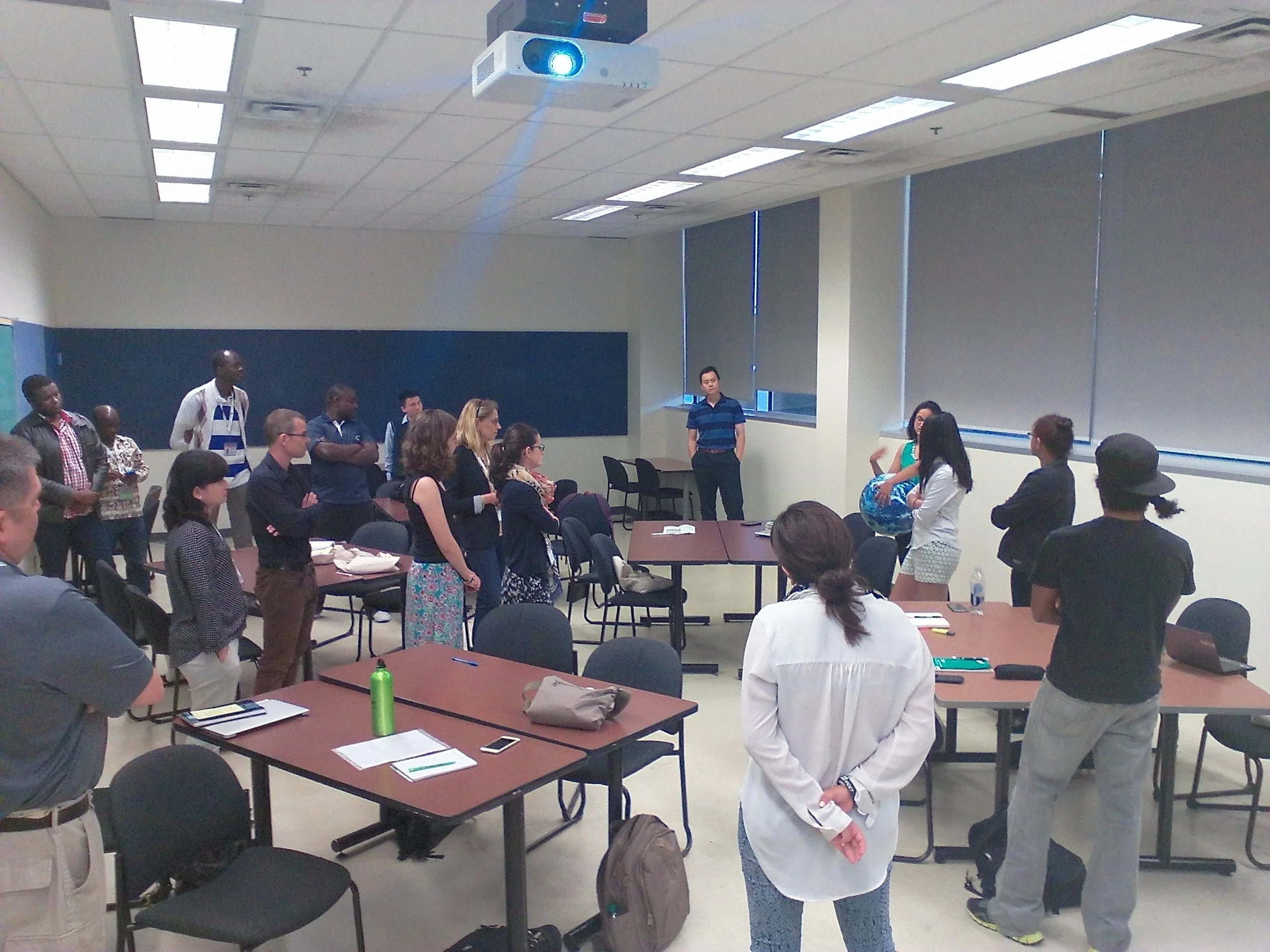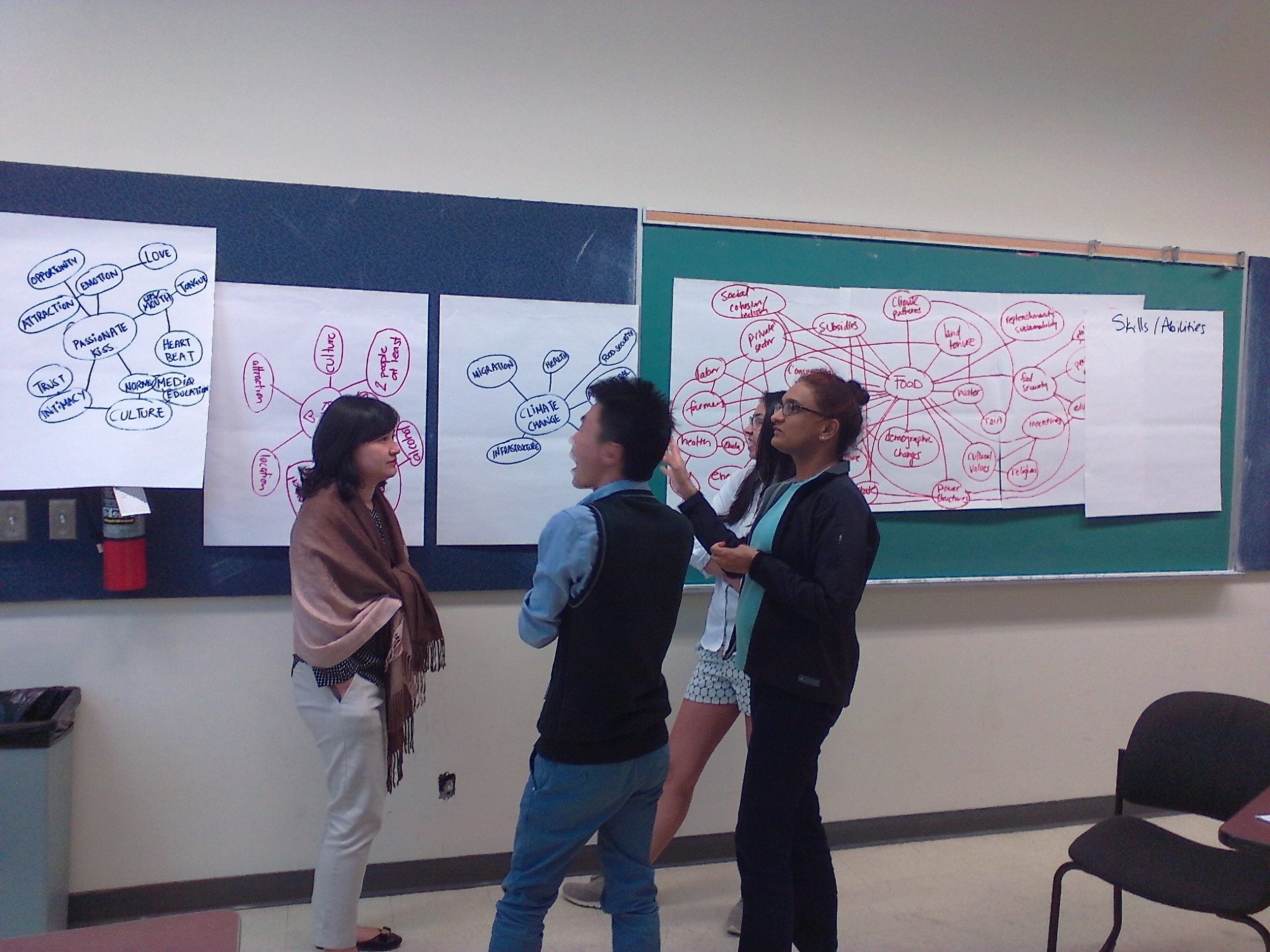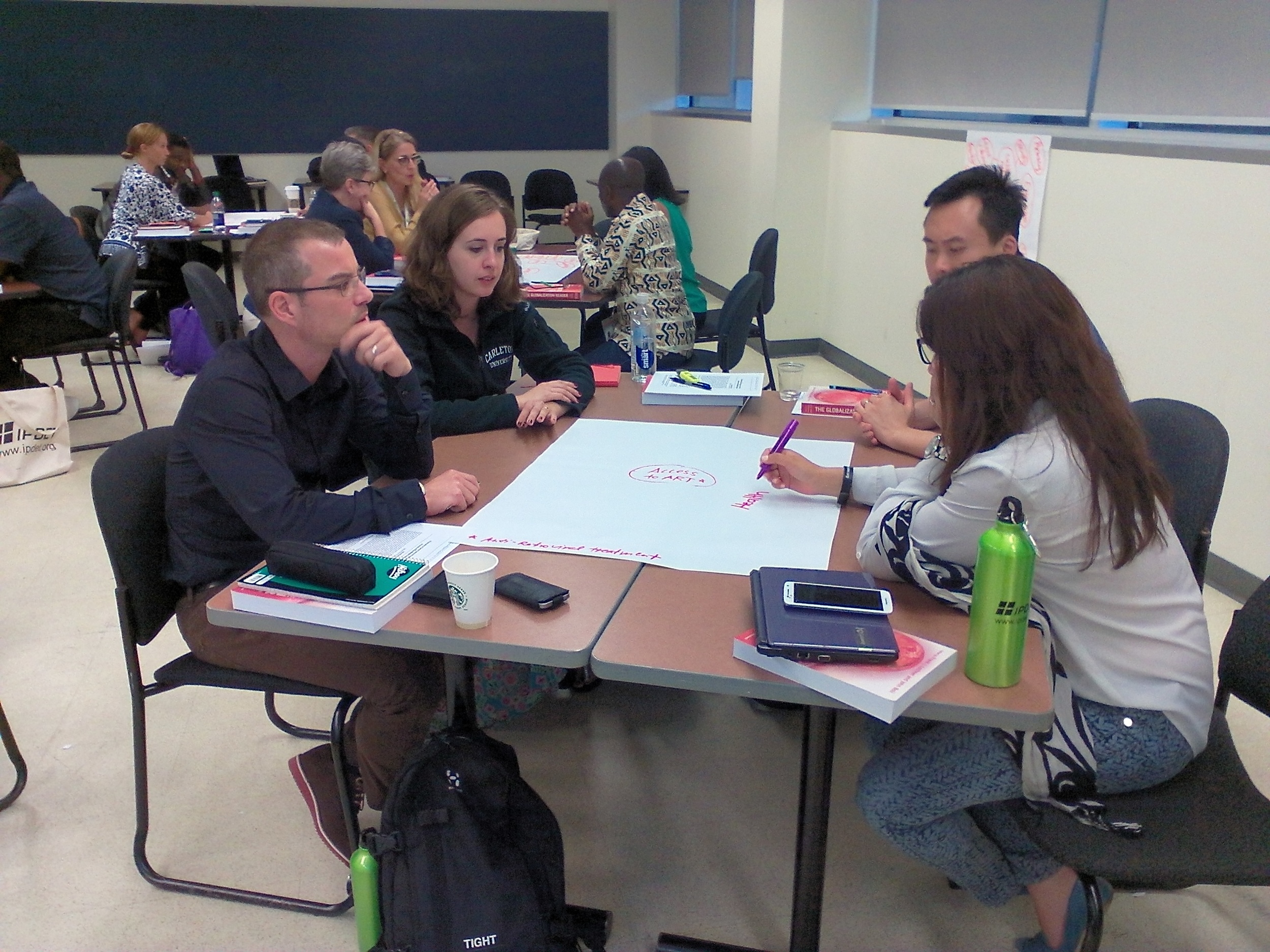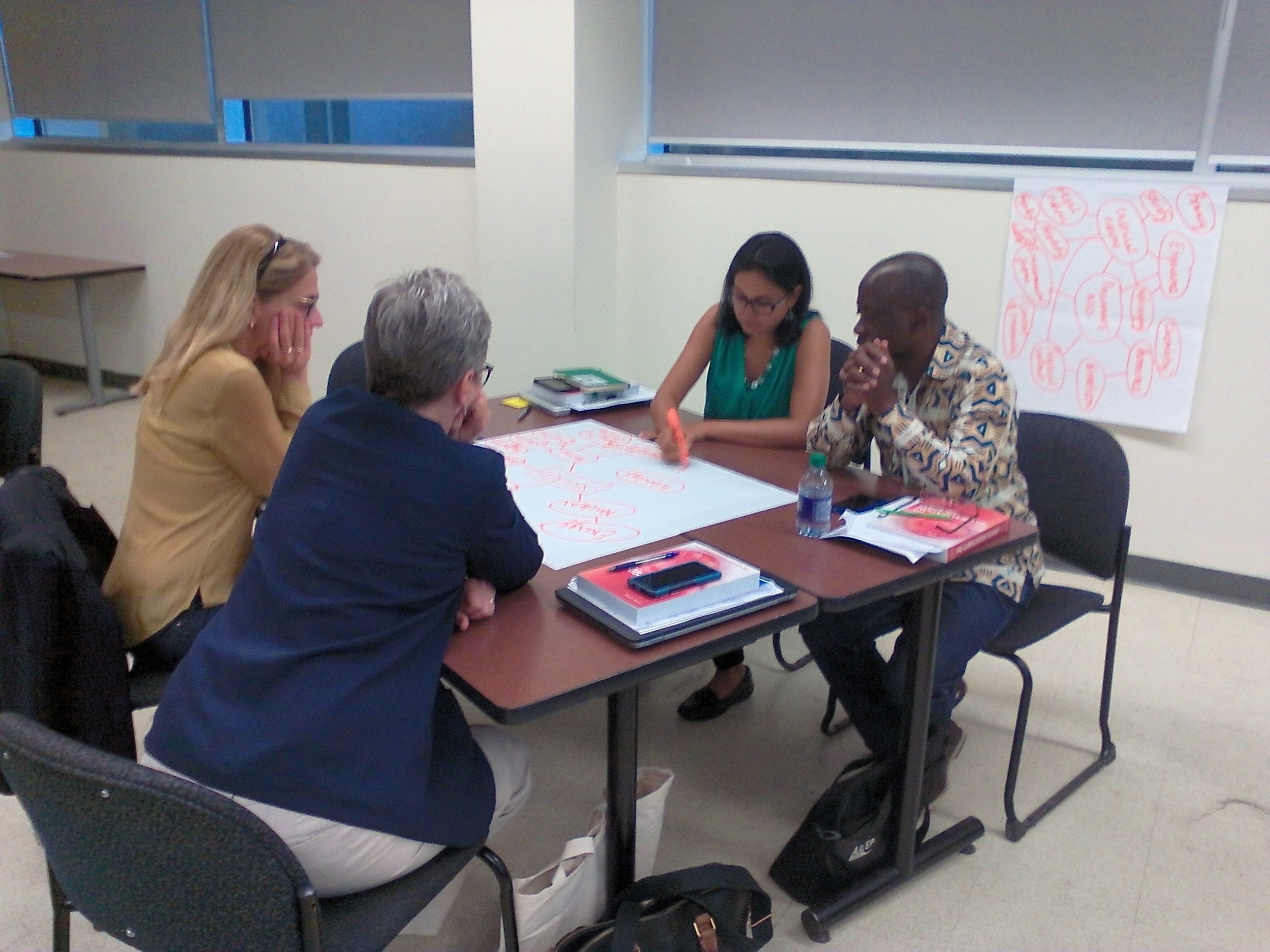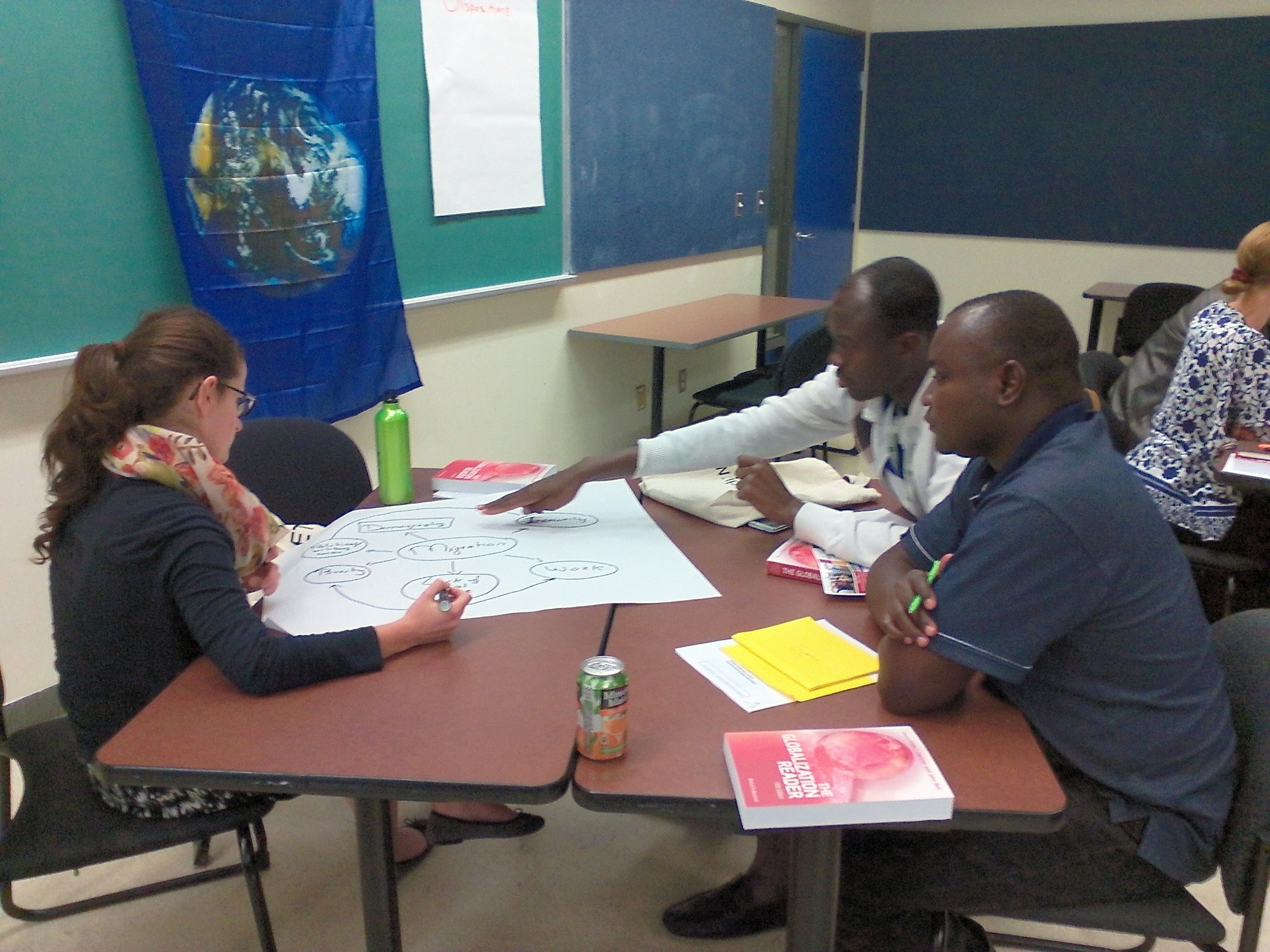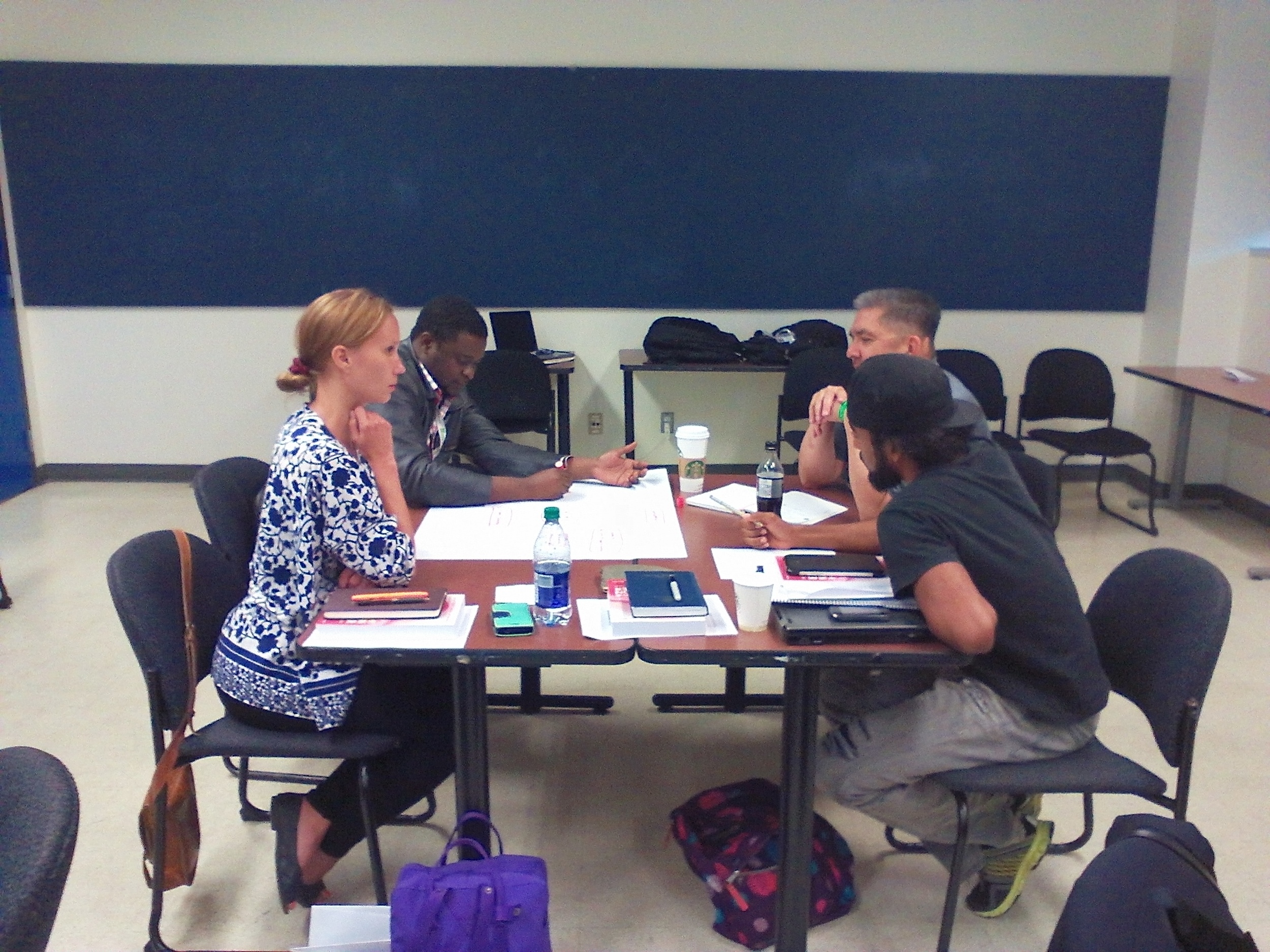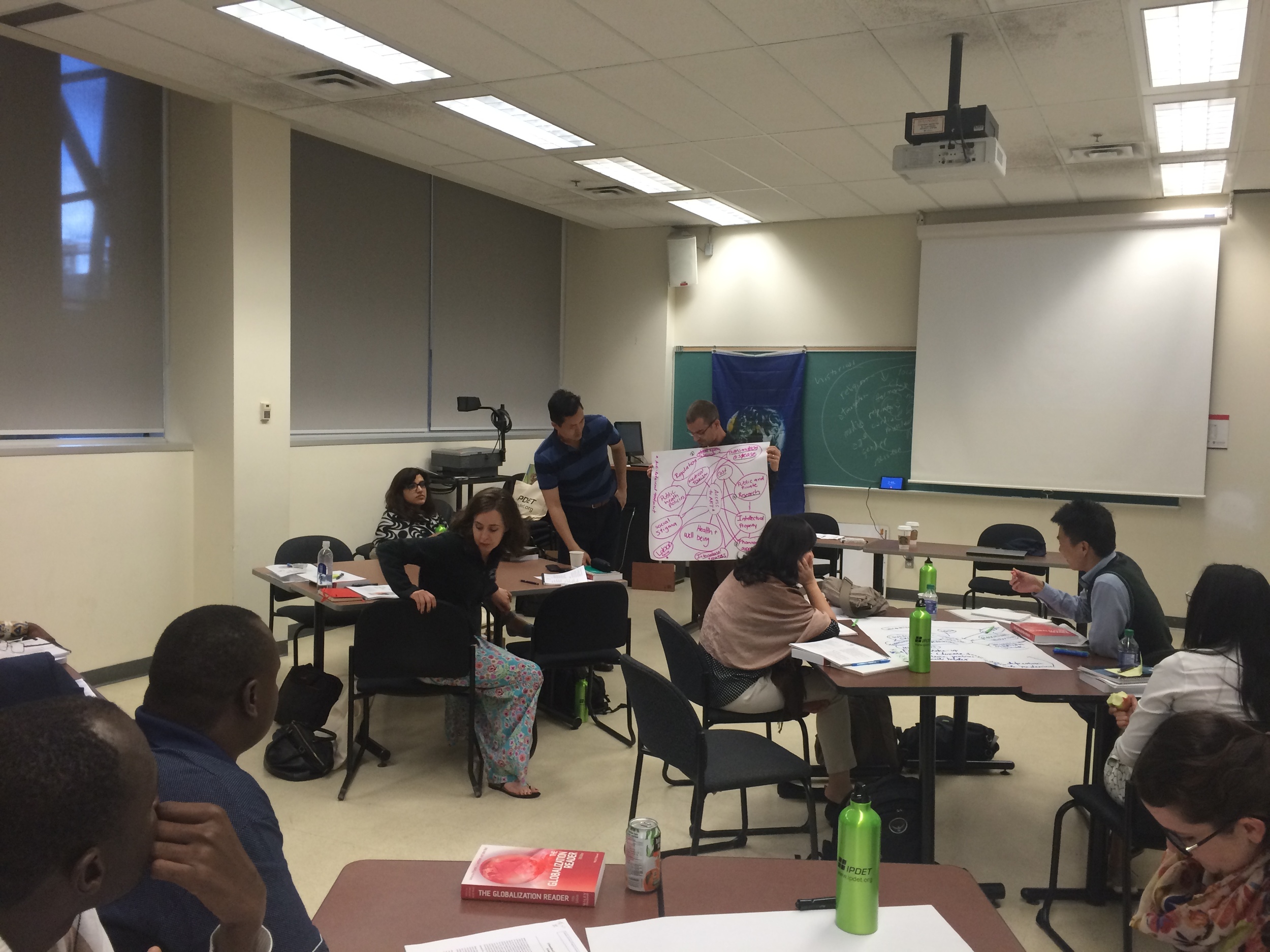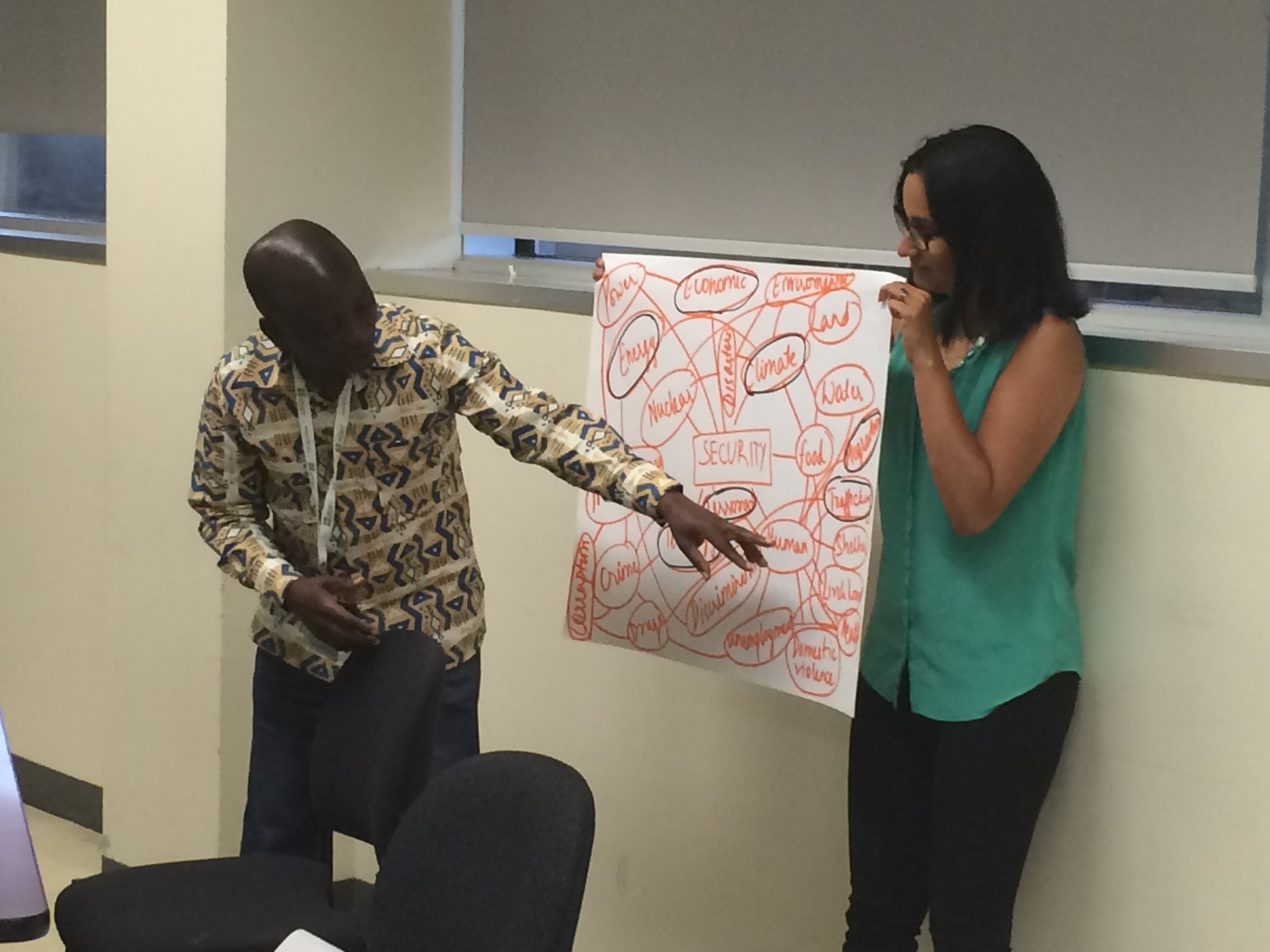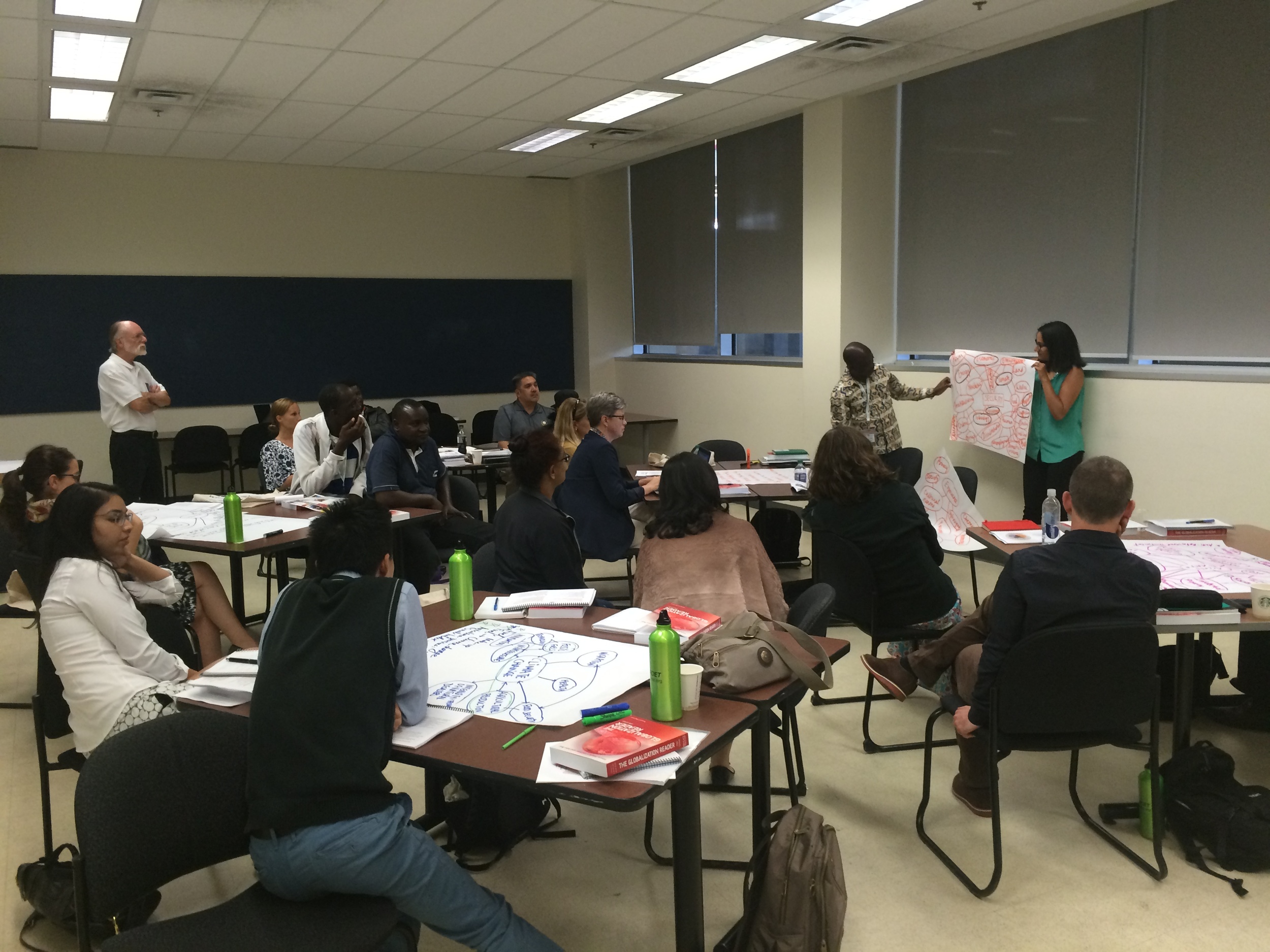Each week, leading up to the Blue Marble Evaluation book and website launch, we will be introducing a new principle of Blue Marble Evaluation. We will start with the four overarching principles. This week, Principle 3: Transformative Engagement.
Principle: Engage consistent with the magnitude, direction, and speed of transformations needed and envisioned.
Basic Premise: Global, anthropogenic problems are so severe, threatening the future sustainability of the planet and humanity, that major and rapid systems transformations are needed.
Implications:
Base transformational interventions on a research-informed theory of transformation knitting together relevant theories of change.
Ensure that what is called transformation IS transformational.
Catalyze, connect, track, map, and evaluate networks and initiatives worldwide to generate critical mass tipping points toward global transformation.
Apply systems thinking and complexity theory to transformational engagements.
Transform evaluation to evaluate transformation.
